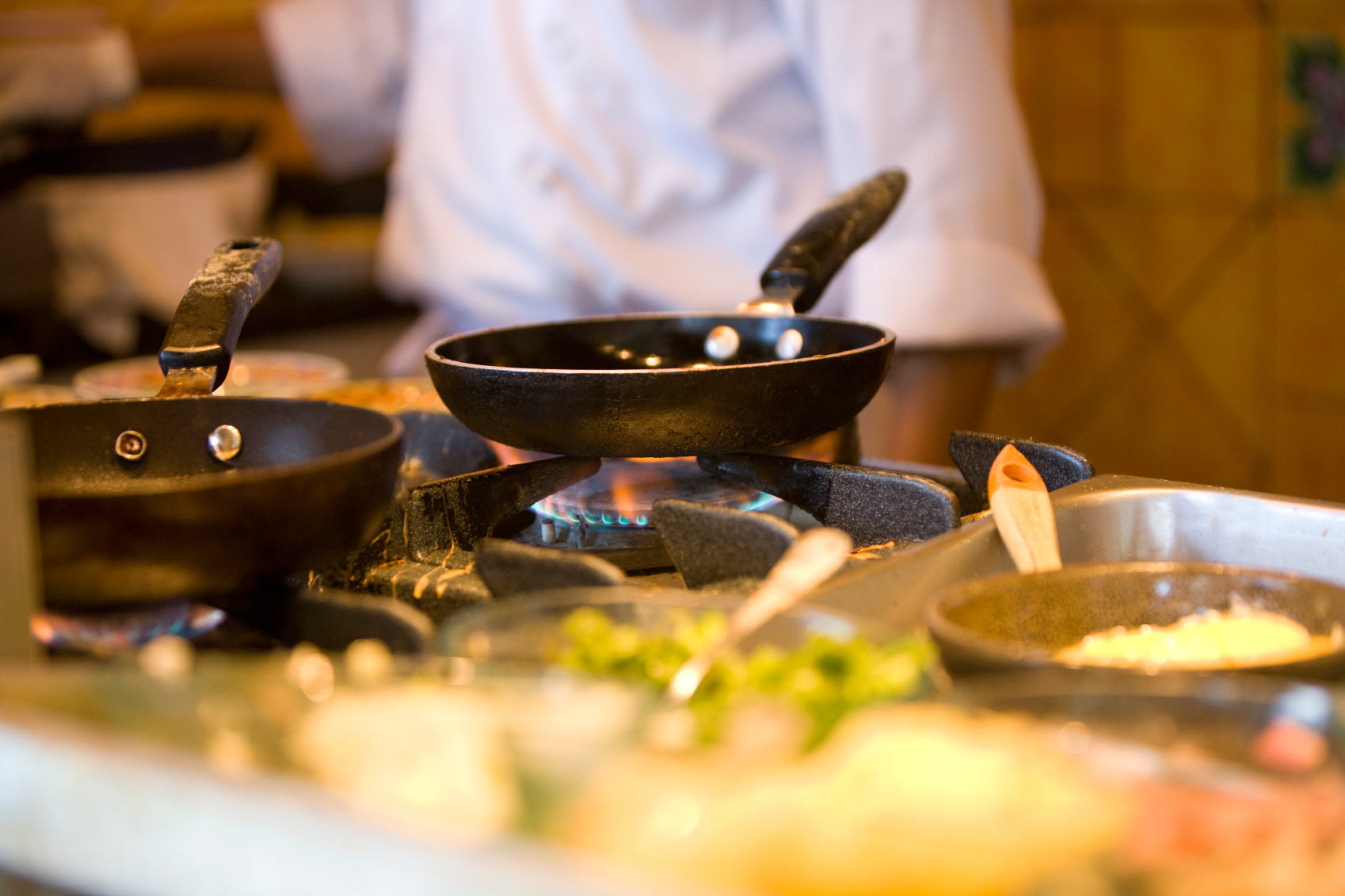We spend more time watching food on TV than we do cooking it

The nation’s obsession with cookery shows, famous chefs and new cookery books continues to grow: it turns out that Britons now spend more than five hours a week consuming ‘food media’ - but only four hours actually cooking, a study has found.
The average adult spends more time watching, scrolling and reading about food on social media than they do cooking their daily meals.
More than half of the 2,000 people surveyed by Lurpak admitted they would rather watch a meal being cooked on TV, or look at photos online, than cook, with many saying they’re too short of time, or the dishes look to complicated to manage.
The study found the average adult spends one hour and 37 minutes a week watching food-related shows, with the Great British Bake Off, Masterchef and Come Dine with Me being the most popular.
Those surveyed also spent a total of three-and-a-half hours digesting food content on digital platforms every week 44 minutes on Facebook, 20 minutes on Twitter, 19 minutes on Instagram and Pinterest and 34 minutes on YouTube.
It’s estimated that Britons also spend 58 minutes reading food websites and blogs, 15 minutes snapchatting about food and nine minutes browsing recipe books each week.
Although seven in ten enjoy watching cooking programmes, only half have been inspired to try and cook something they've seen on screen. Another one in ten say it's been at least a year since they tried to make a recipe they spotted online or on TV.
One in five also admitted to making a dish at home just to take a photograph and share it on social media sites like Instagram.
Michelin-starred chef, Mark Sergeant, said: "This is really interesting and I hope it's not actually true. We need to get stuck in to cooking - as opposed to eating ready meals on the sofa.
"Let’s transfer this love of onscreen cookery into our real-life kitchens."
A whopping 56 per cent of people wished they cooked the recipes they saw online more often, so there is an appetite for change.
Media psychologist, Emma Kenny, said: “Cooking programmes have been a part of our television viewing pleasure since the 1950s. Fast-forward to 2016 and there are over 18 days worth of cookery shows available on our screens each week plus social media offering so much delicious content. It seems that, as a nation, we are fixated with any activity related to food culture."
The study also found that despite our love of cooking shows and magazines, over a fifth of people have never cooked an evening meal from scratch. And those who do cook from scratch say only three of their evening meals a week are made using fresh ingredients.
She added: “We’re being brainwashed into thinking that cooking is too difficult, takes too long and costs too much and it’s turning us to convenience food.”
Article Source: http://www.telegraph.co.uk/food-and-drink/news/we-spend-more-time-watching-food-on-tv-than-we-do-cooking-it/
Image Source: http://www.lynchburgparksandrec.com/wp-content/uploads/2016/01/camaje-cooking-7.jpg
VOCABULARY WORDS:
1. Fixated (adj.) ~ to acquire an obsessive attachment to someone or something
2. From scratch (idiom) ~ from the very beginning, especially without utilizing or relying on any previous work for assistance
3. Appetite (n.) ~ a natural desire to satisfy a bodily need, especially for food
4. Onscreen (adj.) ~ shown or appearing in a movie or television program
5. Complicated (adj.) ~ consisting of many interconnecting parts or elements intricate
6. Brainwash (v.) ~ make (someone) adopt radically different beliefs by using systematic and often forcible pressure
QUESTIONS FOR DISCUSSION:
1. Are cooking shows popular in Korea? Why do you think people enjoy watching cooking shows and looking at pictures of food on SNS?
2. Have you ever tried cooking a recipe you saw on TV? If yes, how did it turn out? If no, what recipe would you like to try?
3. How does the popularity of cooking shows affect the eating habit of Korean people? Discuss your answer.